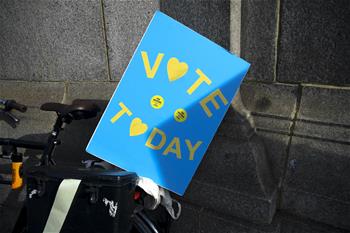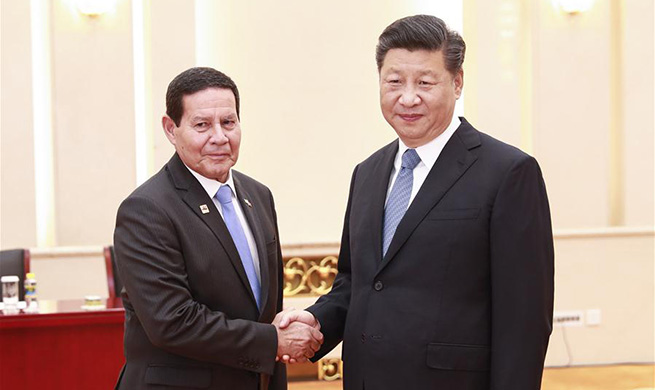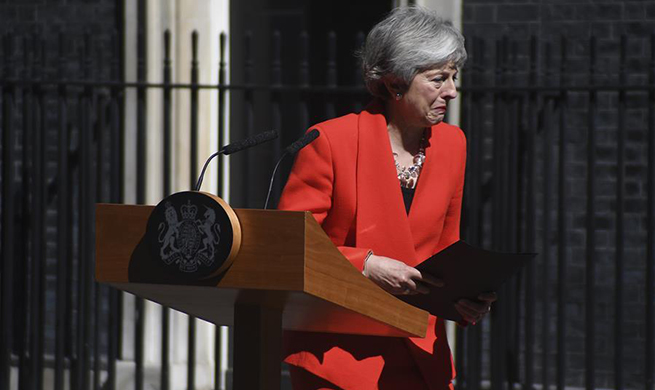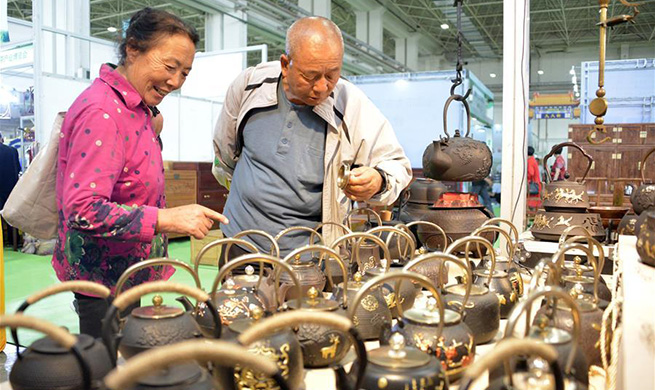BERLIN, May 24 (Xinhua) -- Only 42 percent of the tendered bid volume could be awarded to onshore wind projects in Germany in the latest round of tenders, which was a "new negative record", according to a study published by the specialist agency for onshore wind energy, FA Wind, on Friday.
Of the 650 megawatts (MW) tendered, only 270 MW were awarded for the construction of new wind turbines in Germany, the FA Wind study noted.
"The expansion of wind energy in Germany has been in sharp decline for more than a year. If the trend is not reversed soon, national climate protection targets will be jeopardized," Juergen Quentin, adviser at the onshore wind agency, told Xinhua on Friday.
The participation rate in the most recent round of tenders for German onshore wind projects had also reached a "new negative value" of 17 percent, the study found.
The German onshore wind agency noted that only eight federal states received any additional funds in the most recent round of tenders, the majority of them in the north.
"The regional distribution of the subsidized wind turbines is much more concentrated in the north than has been the case in the previous decade," the agency noted.
Between 2010 and 2018, an average of one fifth of the annual wind turbines were installed in the southern German states, while around 80 percent of the new plants were built in northern Germany.
"Onshore wind energy is and must remain one of the main pillars for the decarbonization of electricity supply so that the energy transformation can succeed," Quentin said.
According to the Bundesnetzagentur (German Network Agency for Electricity, Gas, Telecommunications, Post and Railway), the competitive level for the second tender round in 2019 had reached a "new worrying dimension".
The difficult situation regarding approvals for the construction of wind turbines by the responsible state authorities in Germany "continues to have a significant impact on the tender procedure and result," according to the Bundesnetzagentur.
By 2030, the German government is aiming to increase the share of renewable energies in the national electricity mix from the current 38 percent to 65 percent.
The German Wind Energy Association (BWE) has predicted that an increase of at least 4.5 gigawatts (GW) per year would be needed to achieve this goal in time.
Last year, wind energy accounted for the largest share of renewable energy in German electricity generation, at 17 percent, according to a study by the Fraunhofer Institute for Solar Energy Systems (ISE).













